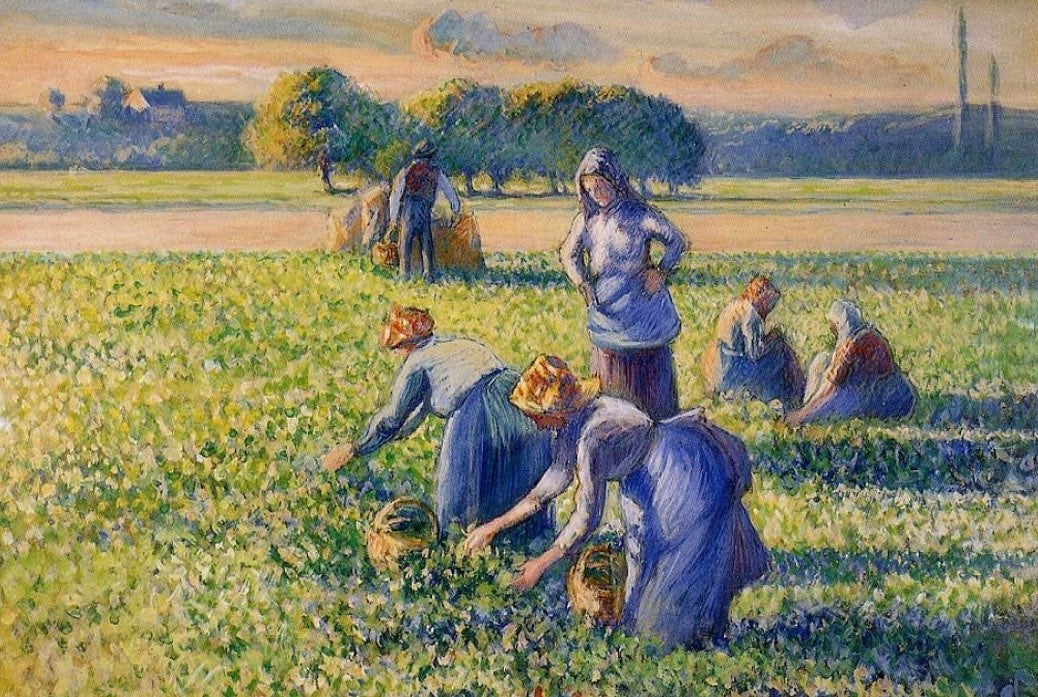One of history’s greatest philosophers thought work makes you a worse person
Today, being a hard-worker is seen as commendable, almost virtuous. “Get a job” is an insult intended to insinuate that someone is lazy and contributing little to society, while “hard-working folk” are considered morally decent citizens. It wasn’t always that way.


Today, being a hard-worker is seen as commendable, almost virtuous. “Get a job” is an insult intended to insinuate that someone is lazy and contributing little to society, while “hard-working folk” are considered morally decent citizens. It wasn’t always that way.
More than 2,300 years ago, the philosopher Aristotle declared that the virtuous life was not one devoted to work. Writing in Politics, he declared that:
…in the most nobly constituted state, and the one that possesses men that are absolutely just, not merely just relatively to the principle that is the basis of the constitution, the citizens must not live a mechanic or a mercantile life (for such a life is ignoble and inimical to virtue), nor yet must those who are to be citizens in the best state be tillers of the soil (for leisure is needed both for the development of virtue and for active participation in politics).
In other words, people who are too busy working don’t have the time to perform their civic duty or develop sophisticated morals.
In the book Bullshit Jobs, published last month, London School of Economics anthropologist David Graeber traces how we’ve shifted away from Aristotle’s perspective and towards the work-focused attitudes of today. Graeber argues that the blame lies, as it does with so many assumptions in contemporary western society, with Judeo-Christian religion.
In the book of Genesis, when the Judeo-Christian god kicks Adam and Eve out of the Garden of Eden, he sentences women to the labor of childbirth and men to physical labor; both are meant simultaneously as punishment and an opportunity for humans to imitate god’s divine power of creation. “The Judeo-Christian God created the universe out of nothing,” writes Graeber. “His latter-day worshippers, and their descendants, have come to think of themselves as cursed to imitate God in this regard.” In other words, to work is divine.
In the feudal societies of medieval Europe, the function of paid work was explicitly founded on these theological ideas. Children aged seven to 15, from all classes, were sent to work in other households or as apprentices in order to learn self-discipline and manners, to, in theory, become better people. “Work, especially paid work, was seen as transformative,” writes Graeber. People went from apprentices to masters, using their training to set up their own businesses and become their own boss.
Then capital took over. When the means of production moved out of the hands of the producers themselves and into the control of an ownership class, apprentices increasingly lost opportunities to grow into self-governing masters. By the 16th century, there was less of a clear path from apprentice to boss, and so work became less of a practical means to a better way of life. English middle-class Puritans began to emphasize the value of work for its own sake. “Work was self-mortification and as such had value in itself, even beyond the wealth it produced,” writes Graeber.
These ideas were expressed even more emphatically after the industrial revolution, particularly in 19th-century philosopher Thomas Carlyle’s theories on what he called the “Gospel of Work.” This notion, highlighted in Graeber’s book, reveals a religious reverence for work: “All work, even cotton-spinning, is noble; work alone is noble, be that here said and asserted once more,” Carlyle wrote in his book, Past and Present. “Oh brother, if this is not ‘worship,’ then I say, the more the duty for worship; for this is the noblest thing yet discovered under God’s sky. Who art thou that complaints of thy life of toil? Complain not.”
These ideas linger on today, even if they’re no longer explicitly expressed in a religious context. Graber quotes Al Gini and Terry Sullivan, two sociologists who wrote in a 1987 paper titled “Work: The Process and the Person” that “work is not just a course of livelihood, it is also one of the most significant contributing factors to an inner life…. To be denied work…is to be denied the ability to define and respect one’s self.” Gini and Sullivan found that though most people value work, they also hate their jobs.
That’s because self-sacrifice is seen as an inherently character-forming aspect of work. “Suffering has become a badge of economic citizenship,” writes Graeber.
When people emphasize just how overworked they are today, they’re not simply complaining of burdens, they’re also signaling their diligence and good standing in this moral economy. As Graeber shows, this notion is inherently Judeo-Christian. But, though 2,000 years of religious teaching have solidified this credence, Aristotle saw things differently. The theory that working hard signifies morality is widely-accepted but, ultimately, far from objectively true, and there’s no reason we should continue to buy into this belief.